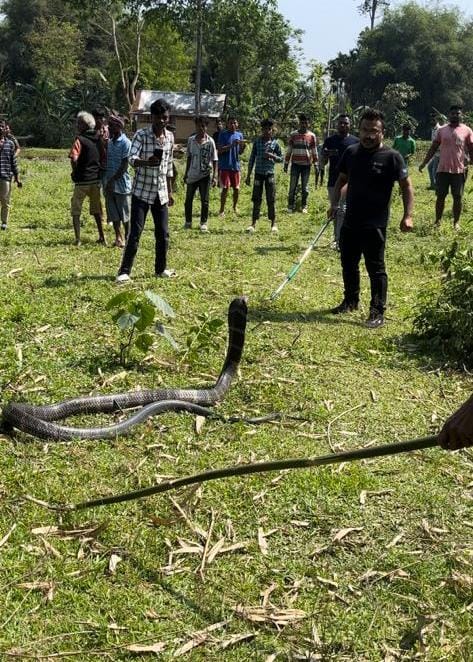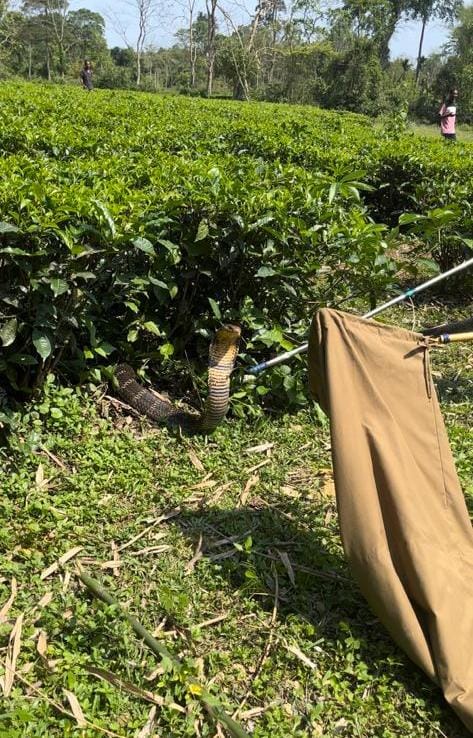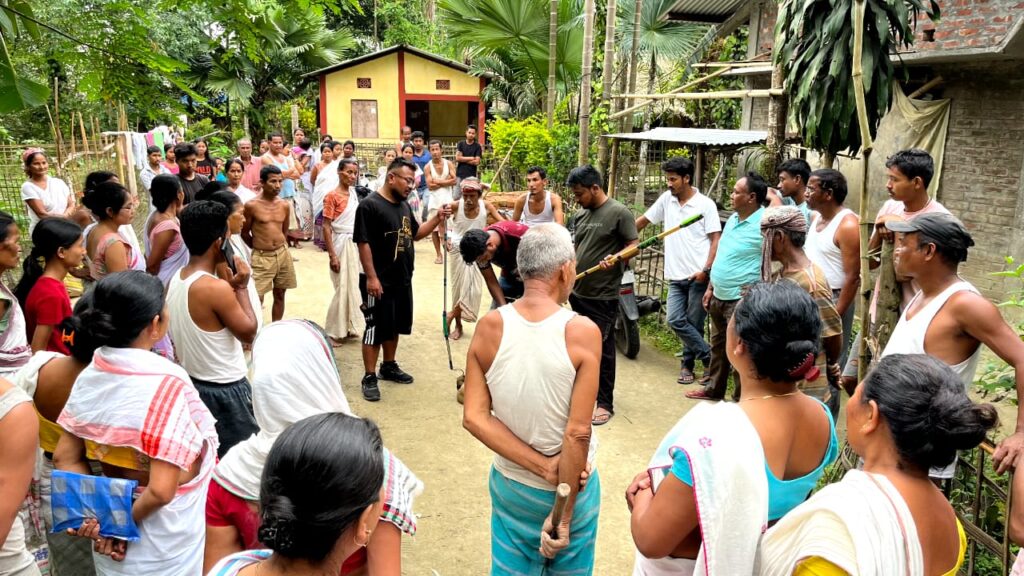By Trinayan Gogoi
The Dehing Patkai rainforest, located in the northeast Indian state of Assam, is known for its rich biodiversity and unique ecological features. It is home to several endangered and critically endangered species, including the king cobra, which is the world’s longest venomous snake. The king cobra plays a vital role in maintaining the ecological balance of the forest ecosystem by preying on rodents and other small animals.
The rampant deforestation and habitat destruction in the region have resulted in a significant decline in the king cobra population. The clearing of forested areas for agriculture, logging, and mining activities has caused the fragmentation of the forest, leading to the isolation of the snake’s natural habitats. The degradation of the forest floor and the destruction of forest cover have also led to a reduction in prey availability for the king cobra.
The loss of habitat has forced the king cobra to venture into human settlements in search of prey, which has resulted in an increase in human-snake conflict. The lack of awareness about the ecological significance of the king cobra and other snake species has resulted in a negative attitude towards these reptiles, leading to their persecution and killing by humans.

In such a scenario, Green Bud, a group of wildlife enthusiasts and rescuers, has been working relentlessly to rescue and rehabilitate wildlife, including the king cobra, that venture into human settlements.
We have a dedicated team of professionals who use specialized equipment to capture the animals safely, ensuring no harm comes to the animal or the rescuers. Once the animal is captured, it is taken to a safe location away from human settlements and released into its natural habitat.
Green Bud has been working towards rescuing and rehabilitating wildlife, including the king cobra, from human settlements in the region for several years. Our efforts have been commendable, and we have successfully rescued and released several wildlife including king cobras into their natural habitat, reducing the number of human-wildlife conflicts in the region.

In addition to our rescue efforts, we have been actively involved in creating awareness among the local communities about the ecological significance of the king cobra and the importance of conserving their natural habitats. We have been conducting on-spot awareness drives, and educational programs to sensitize the local communities about the need to protect these iconic reptiles and their habitats.
However, Green Bud’s efforts alone are not enough to protect the wildlife in the long term. The forest department and the local community must come together to protect the forests of Dehing Patkai and promote sustainable land use practices.The forest department must impose strict laws to curb illegal activities like logging and mining, which are responsible for habitat loss.

The local community must also be educated about the importance of conservation and the significance of wildlife in maintaining the ecological balance of the region.
In conclusion, the loss of habitat in the Dehing Patkai rainforest has put the survival of the king cobra and other wildlife species at risk. The increasing human-wildlife conflict in the region is a cause for concern and requires urgent action to protect these wildlife.
At Green Bud, we remain committed to our mission of protecting the king cobra and other wildlife species by providing them with the necessary support and creating awareness among the local communities about their ecological significance.